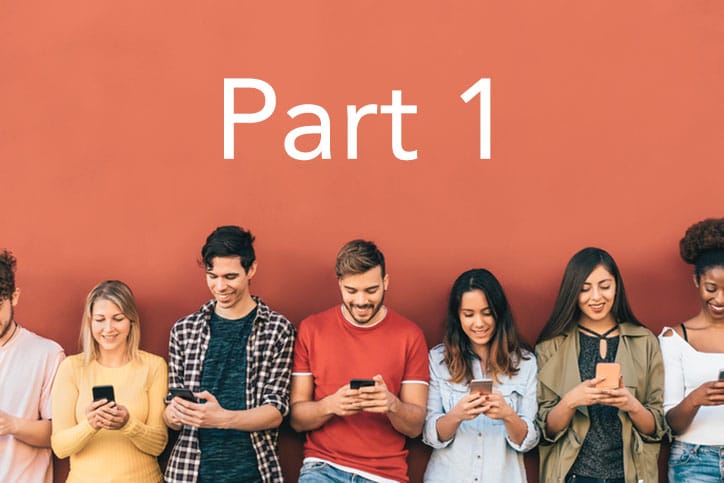Screen time is inherently bad for your mental health, but in the post-pandemic world, it’s mostly unavoidable. Many adults, teens and children have shifted to working from home or taking classes online. How can you cut back on the screens when they’re required for day-to-day life? Read on to learn how to find a balance with screen time and boost your family’s mental health.
How Screen Time Impacts Your Mental Health
There are several ways screen exposure impacts your mental health and your children’s mental health. For children, persistent screen time may hinder their ability to imagine, explore, and self-entertain. Games, shows and videos on screens tend to be more entertaining than coloring books, building blocks, outdoor activities, etc. Thus a child with consistent screen exposure may find it difficult to participate in activities off-screen.
The blue light from cell phones and tablets can disrupt sleep patterns. Your brain needs sleep to sort through thoughts, memories and events from the day. A good sleep schedule is crucial for good mental health. Screen exposure before bed may suppress the production of melatonin, and it may also prevent you from falling into deep REM sleep.
Furthermore, screen time increases anxiety symptoms, particularly “fear of missing out.” Having a screen accessible creates a portal to the rest of the world. Whatever is happening in the real world becomes less important than the “what ifs” inside the screen. Even if the anxiety is related to work emails or professional conversations, it still takes a toll on how you feel day-by-day.
There’s also something to be said about the addictive nature of social media, which impacts how much you may seek out your screens. Every time you see a notification on your phone, your brain releases a small dose of “happy chemicals,” just like it does for other addictive behaviors. This creates a vicious cycle, where you’re constantly looking for another like, comment or message. By making yourself aware of social media addiction, you can reduce your screen time and create a better environment for your mental health.
How to Reduce the Physical Effects of Screen Time
Some screen time is unavoidable, especially if you work or go to school online. Here are some quick tips to limit the physical effects of screens on your body:
- Take a screen-free break after one hour on your computer. Even if it’s just five minutes of walking to the kitchen and back, that gives your brain a chance to regroup from screen exposure.
- Turn on the blue light filter for your phone or tablet. This may be called the “eye comfort shield” or a similar feature on your device.
- Wear blue light filtering glasses. You can purchase these inexpensively online and wear them to protect your eyes as you view screens. If you wear prescription glasses, you can get a screen filter added to your lenses.
- If your eyes or brain feel overwhelmed, rest for a moment. Go into a dark room in your home and just rest for 10 minutes. Don’t look at your phone, the TV, or any other device. Allow your body to relax.
- Avoid screens at least 30 minutes before bed. The TV isn’t as bad as a blue light emitting device, but consuming any sort of digital content can impact sleep quality. Aim to go to sleep around the same time each night, and create a relaxing routine that eases your mind.


